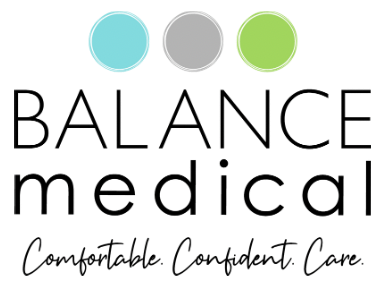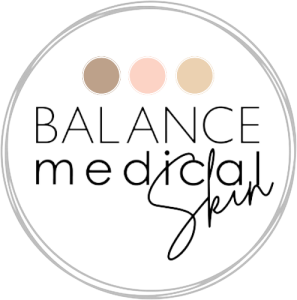Pre-op instructions
In general, all patients should follow the following basic preoperative instructions.
- Pre-op appointments occurs AFTER you have decided on your surgical plan with Dr. Schafer-McLean.
- Pre-op appointments occur with a provider other than Dr. Schafer-McLean. This provider may be your primary care provider or someone you choose with the help of Dr. Schafer-McLean.
- Pre-op appointment should be scheduled within 30 days of surgery to review medical history and medications. Labs may be drawn. Additional consults may be required.
- If you have significant medical issues you may be asked to see your subspecialty team (cardiology, hematology, infectious disease, etc.).
- Blood-thinning medication may need to be stopped about 7-10 days before your procedure. This plan should be created and reviewed at your Pre-op appointment.
- If you take any medications, specific instructions about which medications should be taken on the day of the surgery should be reviewed at the Pre-op appointment.
- Please don’t eat or drink for 12 hours before the procedure, typically at least from midnight the night before surgery.
- Please arrive at the hospital about 2 hours before the scheduled surgery time. Specifics will be reviewed by the hospital-based team via telephone the day BEFORE your surgery.
Postoperative care instructions
Dilation and curettage
- Anticipate up to 7-14 days of bleeding after the procedure.
- You may take a bath or shower.
- We recommend using pads, instead of tampons during this time.
- Sexual intercourse should be avoided for at least 2 weeks after the procedure.
- Please complete all of the antibiotics prescribed.
- Please use pain medications as needed.
- Plan for a follow up appointment in the first 4 weeks post-op.
- Call for fever greater than 100.5 degrees, severe pain, pain not controlled by pain medications, severe nausea or vomiting, bleeding heavier than a menses, foul vaginal odor or any concerns during recovery.
Endometrial ablation & hysteroscopy
- Anticipate brown watery discharge for up to four weeks.
- You may take a bath or shower.
- We recommend using pads, instead of tampons during this time.
- Sexual intercourse should be avoided for at least 2 weeks after the procedure.
- Please complete all of the antibiotics prescribed.
- Please use pain medications as needed.
- Plan for a follow up appointment in the first 4 weeks post-op.
- Call for fever greater than 100.5 degrees, severe pain, pain not controlled by pain medications, severe nausea or vomiting, bleeding heavier than a menses, foul vaginal odor or any concerns during recovery.
Abdominal procedures-hysterectomy, cesarean section
- Please walk as soon as possible after surgery.
- Avoid strenuous activity.
- Do increase activity as your body allows.
- You should avoid driving for about a week and until you are off narcotic pain medication.
- You may take a shower.
- Bathing should be avoided for the first 7 days after surgery.
- We recommend using pads.
- You should avoid intercourse, douching or tampons until after the follow-up appointment.
- Sexual intercourse should be avoided for at least 4 weeks after the procedure.
- Please complete all the antibiotics prescribed.
- Please use pain medications as needed.
- Plan for a follow up appointment in the first 4 weeks post-op.
- Some patients may experience post-surgical constipation from the anesthesia. You may take Milk of Magnesia, MiraLAX or Colace twice times a day.
- If the incision was closed with glue, it will flake off in 10-14 days. If it does not, its ok to rub it off gently with a wet cloth.
- If the incision was closed with Steri-Strips, they will start peeling off in about 1-2 weeks. They can be removed at that time.
- Call for fever greater than 100.5 degrees, severe pain, pain not controlled by pain medications, redness surrounding the incision, heavy drainage from the incision, severe nausea or vomiting, bleeding heavier than a menses, foul vaginal odor or any concerns during recovery.
Vaginal procedures-hysterectomy
- Please walk as soon as possible after surgery.
- Avoid strenuous activity.
- Do increase activity as your body allows.
- You should avoid driving for about a week and until you off narcotic pain medication.
- You may take a shower.
- Bathing should be avoided for the first 7 days after surgery.
- We recommend using pads.
- You should avoid intercourse, douching or tampons until after the follow-up appointment.
- Sexual intercourse should be avoided for at least 4 weeks after the procedure.
- Please complete all the antibiotics prescribed.
- Please use pain medications as needed.
- Plan for a follow up appointment in the first 4 weeks post-op.
- Some patients may experience post-surgical constipation from the anesthesia. You may take Milk of Magnesia, MiraLAX or Colace twice times a day.
- Call for fever greater than 100.5 degrees, severe pain, pain not controlled by pain medications, redness surrounding the incision, heavy drainage from the incision, severe nausea or vomiting, bleeding heavier than a menses, foul odor or any concerns during recovery.
Urogyn procedures-prolapse repairs, midurethral sling
- Please walk as soon as possible after surgery.
- Avoid strenuous activity.
- Do increase activity as your body allows.
- AVOID ALL HEAVY LIFTING
- You should avoid driving for about a week and until you are off narcotic pain medication.
- You may take a shower.
- Bathing should be avoided for the first 7 days after surgery.
- We recommend using pads.
- You should avoid intercourse, douching or tampons until after the follow-up appointment.
- Sexual intercourse should be avoided for at least 4 weeks after the procedure.
- Please complete all the antibiotics prescribed.
- Please use pain medications as needed.
- Plan for a follow up appointment in the first 4 weeks post-op.
- Some patients may experience post-surgical constipation from the anesthesia. You may take Milk of Magnesia, MiraLAX or Colace twice times a day.
- Call for fever greater than 100.5 degrees, severe pain, pain not controlled by pain medications, redness surrounding the incision, heavy drainage from the incision, severe nausea or vomiting, bleeding heavier than a menses, foul vaginal odor, issues with urination or any concerns during recovery.
Laparoscopic procedures
- Please walk as soon as possible after surgery.
- Avoid strenuous activity.
- Do increase activity as your body allows.
- AVOID ALL HEAVY LIFTING
- Some patients may have bloating and abdominal and right shoulder pain in the first 24-48 hours. The symptoms will often subside if you lay flat.Bottom of Form Alternatively, you may use a heating pad to the shoulder or abdomen and walk as much as you are able.
- You should avoid driving for about a week and until you are off narcotic pain medication.
- You may take a shower.
- Bathing should be avoided for the first 7 days after surgery.
- We recommend using pads.
- You should avoid intercourse, douching or tampons until after the follow-up appointment.
- Sexual intercourse should be avoided for at least 4 weeks after the procedure.
- Please complete all the antibiotics prescribed.
- Please use pain medications as needed.
- Plan for a follow up appointment in the first 4 weeks post-op.
- Some patients may experience post-surgical constipation from the anesthesia. You may take Milk of Magnesia, MiraLAX or Colace twice times a day.
- Call for fever greater than 100.5 degrees, severe pain, pain not controlled by pain medications, redness surrounding the incision, heavy drainage from the incision, severe nausea or vomiting, bleeding heavier than a menses, foul vaginal odor, issues with urination or any concerns during recovery.



